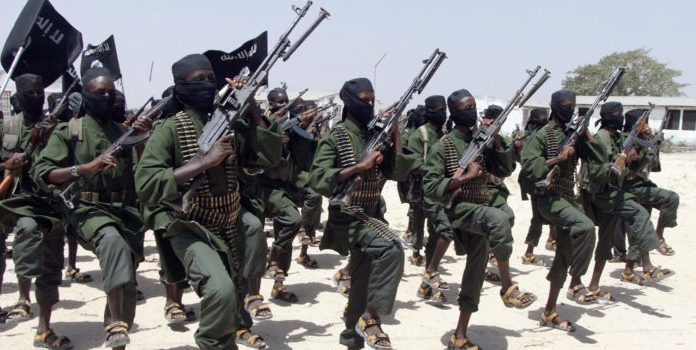(Dave DeCamp, Antiwar.com) The Trump administration is divided over how to handle recent battlefield gains in Somalia by al-Shabaab, which has been making advances and is threatening the US-backed government’s hold on Mogadishu, The New York Times reported on Thursday.
The report said that State Department officials have proposed closing down the US embassy in Mogadishu and evacuating most US personnel to avoid a rushed withdrawal if al-Shabaab does end up taking the city.
Other administration officials are pushing for an escalation, including Sebastian Gorka, a media personality who currently serves as senior director for counterterrorism on the National Security Council.
The Times report said that during an inter-agency meeting, Gorka argued that al-Shabaab taking over Mogadishu would be intolerable and suggested stepping up airstrikes against them, which would mark an escalation of a policy that’s failed to achieve any progress.
No final decision was made at the meeting, and the administration is still divided over what to do next. Many want to avoid a situation similar to the Afghanistan withdrawal, which involved a rushed evacuation of diplomatic personnel. According to US Africa Command, there are about 500 to 600 US troops in Somalia.
Through multiple US administrations, the US has propped up the federal government, which controls little territory inside Somalia’s internationally recognized borders and appears to be weaker than ever. Somaliland in the northwest has acted as a de facto independent state for decades, and last year, the northeastern Puntland region withdrew from the federal system, and the southern Jubaland state ended its cooperation with the federal government following a dispute over elections.
According to the Times, there have been reports of federal government troops not being willing to stand and fight against al-Shabaab. President Hassan Sheikh Mohamud is also said to have alienated rival clans and some of his own supporters.
President Trump dramatically ramped up airstrikes in Somalia during his first term, and since returning to office, he has launched strikes against al-Shabaab and Somalia’s ISIS affiliate, which is based in the Puntland region.
Hawks who favor continued intervention in Somalia portray al-Shabaab as a major threat to the US due to its size and al-Qaeda affiliation, but it’s widely believed the group does not have ambitions outside of Somalia.
Al-Shabaab was born out of a US-backed Ethiopian invasion in 2006 that toppled the Islamic Courts Union, a coalition of Muslim groups who briefly held power in Mogadishu after ousting CIA-backed warlords.
Al-Shabaab was the radical offshoot of the Islamic Courts Union. The group’s first recorded attack was in 2007, and it wasn’t until 2012 that al-Shabaab pledged loyalty to al-Qaeda after years of fighting the US and its proxies.
This article originally appeared at Antiwar.com.

